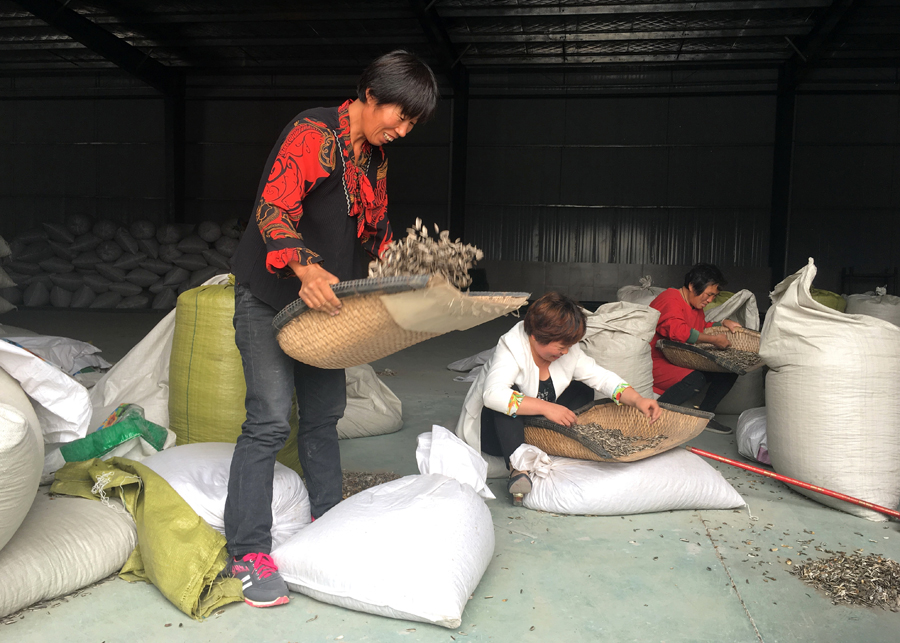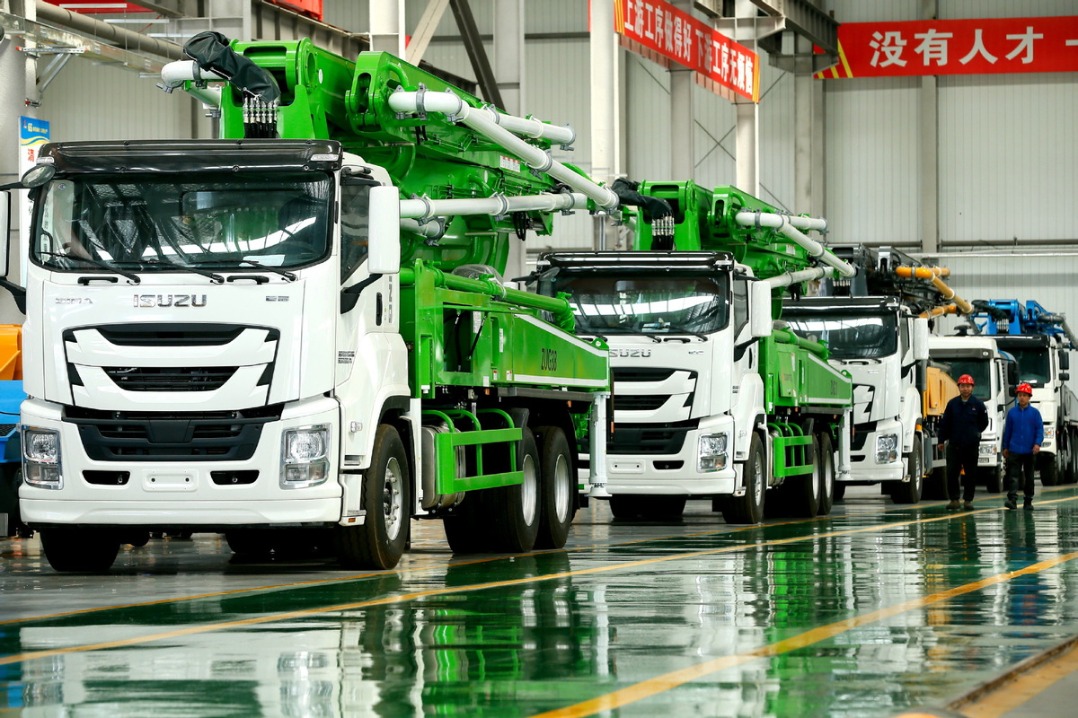Returning workers succeed at home


Increasing salary, job opportunities boost tide of rural revival
Sixteen years ago, leaving his home village of Sanyizhai in Central China's Henan province for coastal cities was the only way Sun Ming could realize his dream-to earn enough money to build a two-story house back home, where he could get married and support his agricultural family. But it is no longer the only way.
"The monthly salary in Lankao at the turn of the century was around 150 yuan ($21), whereas workers in coastal factories could earn 10 times as much," said the 32-year-old, who now runs a plant nursery in Sanyizhai, in the west of Lankao county.
"The net revenue from my nursery last year alone reached 200,000 yuan," he laughed, adding it was just the amount needed to build a two-story house.
Sun is among some 30,000 migrant workers from Lankao who have returned home over the last decade, with enough skills and capital accumulated over the years to start lucrative businesses at their doorsteps, according to the county's human resources and social security bureau.
The returning tide of talent and capital created 96,000 local jobs, giving people more job alternatives within the county, the bureau said.
Leave for a better life
China's reform and opening-up, which began in 1978, has triggered rapid urbanization in coastal regions and, as a result, massive numbers of farmers from impoverished Central and West China have flowed southeast to feed the hunger for construction workers there.
With a population of almost 100 million, Henan has since become a major exporter of labor. The draining away of younger workers seriously impacted a number of impoverished counties, such as Lankao, that remained on the national list of poverty-stricken counties until last year.
In 2002, Sun finished middle school at age 16, and going to high school was a luxury he could not afford. He first tried his luck in an electronics factory and then a cotton mill in the southern city of Guangzhou, Guangdong province, and later worked for a flower wholesale market in Shanghai, where he married and had a son.
"I could earn up to 20,000 yuan a month when I worked extra hours on weekends, but the cost of a thrifty life was high as well," he said.
Despite higher salaries in the cities, many migrant workers find it hard to blend into urban society. The strict hukou, or household registration system, has increased the cost of being an outsider in cities by limiting access to schooling and healthcare. And the inadequate protection of their labor rights has left them prone to poor working conditions and payment defaults.
The 2008 financial crisis also dealt a heavy blow to coastal factories, and an estimated 3 million migrant workers from Henan were forced back to their hometowns.
Though Sun didn't return home immediately, he was impressed with the changes in his hometown every time he came back for the Spring Festival holiday.
The new high-speed railway station, the increasingly mature road network and the growing demand for ornamental plants for street decoration appealed to him.




































